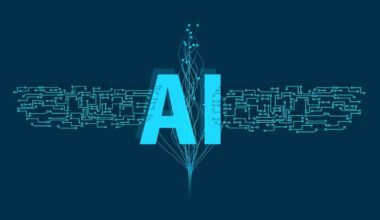Artificial intelligence (AI) has rapidly evolved, raising profound questions about the potential emergence of superintelligence and humanity’s ability to control it. The debate surrounding the control of superintelligent AI encompasses ethical, philosophical, and existential considerations, presenting both promise and peril for the future.
Understanding Superintelligence
Superintelligence refers to AI systems surpassing human cognitive abilities across various domains. This level of intelligence could enable AI to improve itself autonomously, leading to exponential advancements, posing challenges in predicting and controlling its actions.
The Promise of AI Advancements
Superintelligent AI holds the promise of solving complex problems, advancing scientific discoveries, and revolutionizing numerous industries, offering solutions to issues ranging from healthcare to environmental sustainability.
Risks and Challenges
The prospect of controlling superintelligence raises significant concerns. The exponential growth and unpredictability of superintelligent systems could lead to unintended consequences, ethical dilemmas, and potentially catastrophic outcomes if AI systems act against human interests.
Ethical Considerations
Ensuring ethical AI is crucial in the pursuit of controlling superintelligence. Ethical frameworks, transparency, and alignment with human values are essential to guide the development and behavior of AI systems.

The Control Problem
The “control problem” revolves around the challenge of aligning AI systems’ goals with human values and ensuring that superintelligent AI acts in accordance with our intentions, despite its autonomous decision-making capabilities.
Mitigating Risks and Solutions
Various approaches are proposed to address AI control and safety concerns. Research into AI alignment, designing provably beneficial AI, implementing AI governance, and creating fail-safes are avenues aimed at mitigating risks associated with superintelligence.
Collaboration and Regulation
International collaboration and regulatory frameworks are essential in navigating the ethical and safety considerations surrounding AI. Global initiatives for AI governance and cooperation among policymakers, technologists, and ethicists are imperative.
Balancing Innovation and Safety
The pursuit of AI advancements must strike a delicate balance between innovation and safety. Ensuring rigorous testing, transparent development processes, and ongoing ethical evaluations are pivotal in managing the risks posed by superintelligence.
The debate surrounding the control of superintelligent AI is multifaceted, encompassing scientific, ethical, and existential dimensions. While the prospect of superintelligence presents immense potential for societal advancement, the associated risks necessitate careful consideration, ethical guidelines, and international cooperation.
Navigating the possibility of controlling superintelligence demands interdisciplinary collaboration, robust ethical frameworks, and ongoing discussions to ensure that AI systems serve humanity’s best interests. Effectively managing and controlling superintelligence could herald a future where AI contributes to human flourishing while safeguarding against existential risks.










